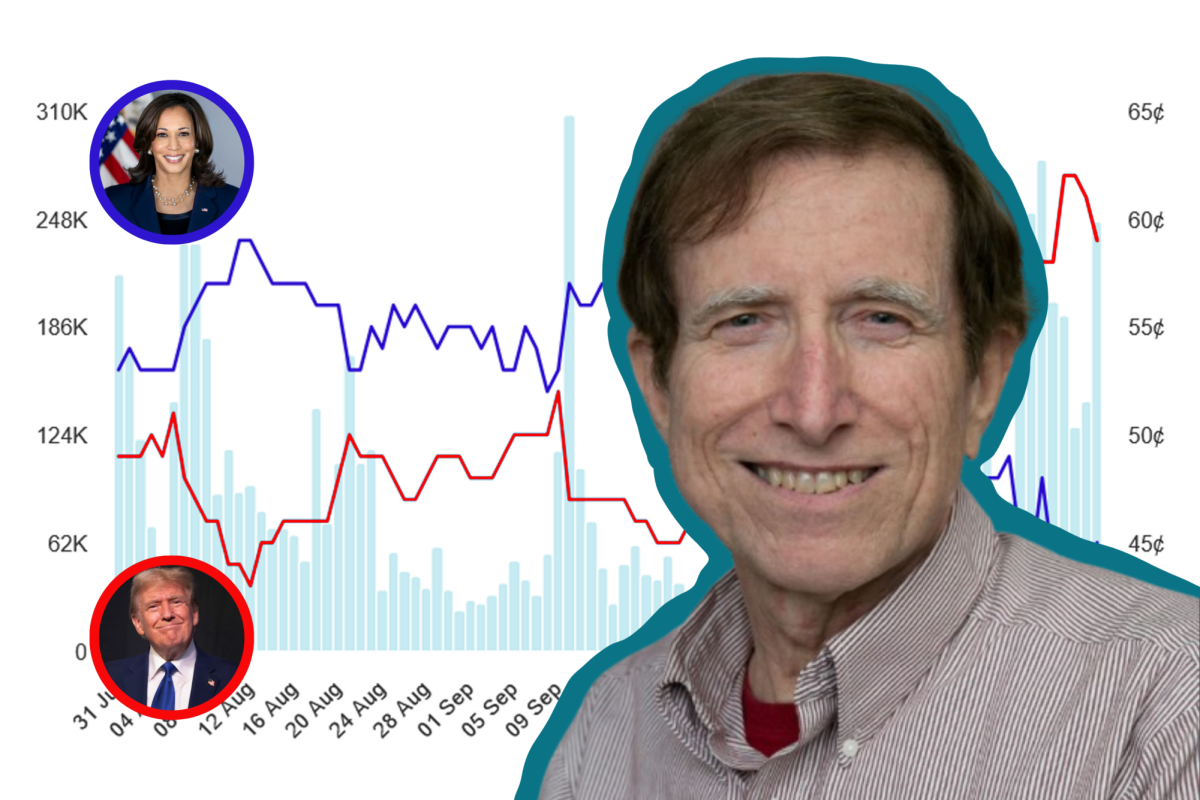With the election just over a week away, many people are closely monitoring the upcoming presidential election polls. However, data science Prof. Thomas Miller, who teaches at the School of Professional Studies, argues people should look to predictions based on election betting markets instead.
Miller runs an election forecasting site called The Virtual Tout, where he provides daily predictions of electoral college votes in the 2024 presidential election. The site draws data from PredictIt, an online prediction market.
On PredictIt, users can place bets on either Vice President Kamala Harris or former president Donald Trump to win the election. Around 41 million shares have been traded for predicting the upcoming election on the site.
Election betting platforms like PredictIt operate on a reward and risk system that incentivizes people to choose who they believe will win rather than who they want to win, offering a more accurate view of the election, Miller said.
“(Prediction markets) have a focus, not on today, not on your preferences, but on your understanding of the world,” Miller said. “Just like in a sporting event, you put money down on which team or candidate you think is going to win.”
In contrast, he said many election polls gather their data from opinion surveys that essentially ask voters the question: “If the election were held today, which candidate would you vote for?”
By necessity, these polls often have smaller sample sizes they analyze to generalize for the entire population, often taking days to complete, Miller said.
“The samples vary from one pollster to the next. The methodology varies from one poll, pollster to the next,” he said. “They’re looking for likely voters, and they’re trying to get representative samples as well as they can … but in 2020 we found that those polls had a large Democratic bias.”
Miller’s teaching assistant, Andrew D’Amico (SPS ’23), said these issues with traditional polling often lead to errors, resulting in biased predictions.
Misleading polls are one of the reasons Miller chose to pursue election forecasting, D’Amico said.
Initially, Miller used data analytics to develop prediction models for sports teams, particularly baseball, he said.
“The Virtual Tout was looking to do something similar, but to treat political campaigns and elections like you would a sporting event,” D’Amico said. “It’s a very novel approach.”
This method relies on the wisdom of crowds, D’Amico said. As people invest, they apply their understanding of the world to determine who they think will win, he added.
Miller said he trusts investors in the marketplace to better represent election outcomes than an expert’s testimony.
“We want to make sure that our outcomes are dictated by data, and not just an expert or a political commentator,” D’Amico said.
While Miller said he believes his forecasting method does a good job of predicting election results, not everyone is convinced by election prediction market models.
Critics have pointed out that prediction markets can be influenced by individuals, such as when Elon Musk drew attention to Polymarket, another prediction market, causing the price of Trump shares to rise artificially.
“When you have an individual investor who can throw millions of dollars into the market, that individual investor can influence the prices in the market,” Miller said. “I use PredictIt, because, as markets go, PredictIt is more trustworthy than other prediction markets.”
PredictIt, unlike Polymarket, operates in the U.S. and has a limit of $850 on each contract, preventing individual investors from influencing the election, Miller said.
While many have questioned if investors in prediction markets are primarily from the U.S., Miller said only U.S. residents are permitted to trade on PredictIt’s platform.
Another criticism of prediction markets is they are more variable than polling.
Early in October, prediction markets and Miller’s site favored Harris, but have since shifted to favor Trump.
Miller said he could not identify any “single event to explain what is happening.” He also acknowledged that prediction markets have a Republican bias but said he corrects for this bias in his model.
“I’m concerned (the media is) missing the fact that Trump is in the lead,” Miller said.
Associate Director of Graduate Programs Beth Lair said she admires Miller’s work to develop new ideas and initiatives surrounding election forecasting.
“He epitomizes our lifelong learner that we have in the school because he’s always pushing himself and earning another certificate, learning some new programming language or some new software,” Lair said.
Email: ninethkanieskikoso2027@u.northwestern.edu
Related Stories:
— Election results unclear as Michigan, Pennsylvania, other battleground states still counting votes
— NU Votes registers hundreds of students to vote ahead of fall election
— The Daily Explains: A guide to voting in the 2024 presidential election for NU students







